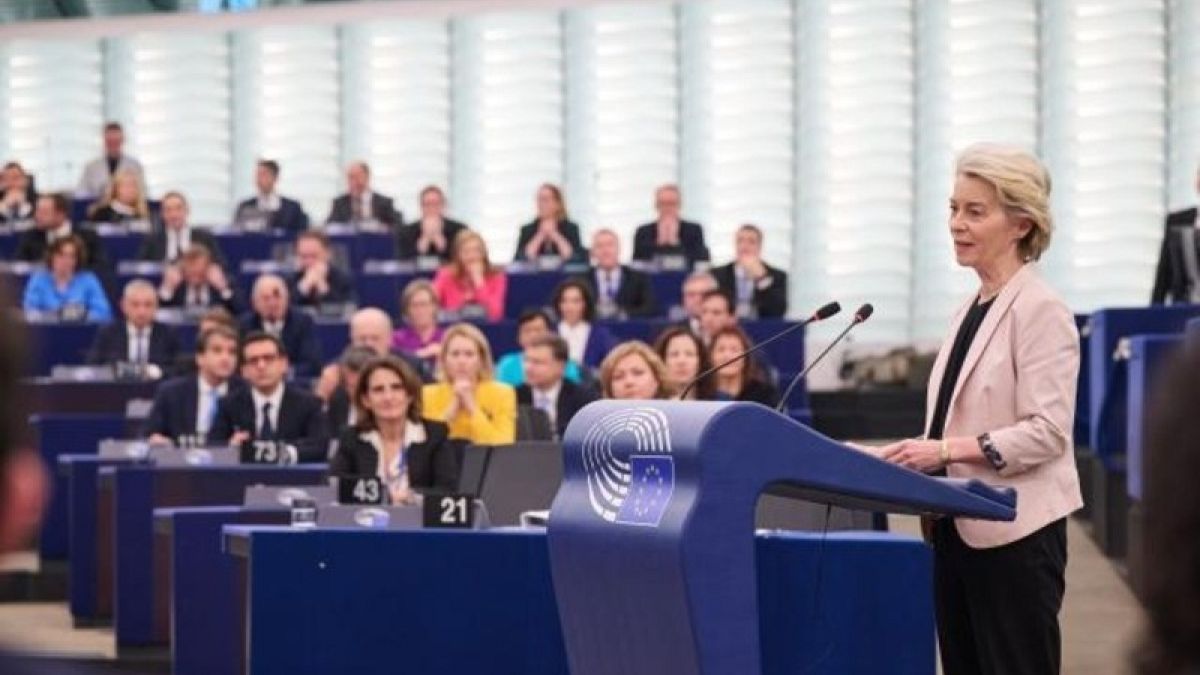Virginia
In Virginia, a battle over history standards ends in compromise – The Hechinger Report

Jenna Saykhamphone, a senior at Annandale High School in Fairfax County, Virginia, helped start an equity team at her high school to fight stereotypes both inside and outside her school in suburban Washington, D.C.
Saykhamphone, who has Laotian and Nigerian ancestry, said there are not many other Black or Hispanic students in her accelerated International Baccalaureate (IB) classes, even though 85 percent of the student body is Black, Hispanic or Asian.
And in one IB history class, she said a teacher had students pick cotton seeds off cotton plants to demonstrate the efficiency of the cotton gin, in an attempt to include multiple perspectives in his class. Saykhamphone and other Black students at the school found this lesson offensive, but their teacher did not understand why until students talked to Fairfax County’s culturally responsive pedagogy specialists to intervene.
So, when she learned that Virginia was planning to revise its history standards — sparking fears of an attempt to downplay the importance of minority communities in the state — she joined dozens of other opponents at a public hearing in Mount Vernon, Virginia, near the home of George Washington.
“I felt like it was my social responsibility to go out and speak,” she said. At the meeting, reading a prepared speech from her cell phone, Saykhamphone shared the cotton gin story and told board members that “for me to truly appreciate American history and my Black and Asian history, standards should not be watered down.”
And, she added, “I also have to miss studying for my physics test to be here.”
Virginia’s rewrite of its history curriculum started off with heat and discord. But the process eventually ended with a set of standards approved unanimously by a bipartisan state board, which included members appointed by current Gov. Glenn Youngkin, a conservative Republican.
That conclusion is a marked contrast to Florida’s recently approved and controversial African-American history standards. Critics say that document minimizes slavery through such standards as requiring students to learn how “how slaves developed skills which, in some instances, could be applied for their personal benefit.”
States were adding lessons about Native American history. Then came the anti-CRT movement
Andy Rotherham, who was appointed to the state board of education in 2022 by Youngkin, said the outcome of the social studies debate shows that people can get past politics to a good result. Rotherham, a Democrat, also served a four-year term on the board from 2005 to 2009, when he was appointed by then-governor Mark Warner, a Democrat.
“We did good work, and we listened to each other,” Rotherham said. But the final outcome is getting lost in the continuing political tensions, he said. “Youngkin appointed good people, but he’s getting zero credit for that.”
But the “good work” that led to unanimous approval was honed through compromise, another difference from Florida’s process.
“In Virginia, Youngkin can’t begin to do what Ron DeSantis can do in Florida on questions of ‘wokeness,’ because there is a Democratic Senate majority that is blocking much of Youngkin’s preferred agenda,” said Stephen Farnsworth, the director of the Center for Leadership and Media Studies at the University of Mary Washington. However, every seat in the General Assembly is on the ballot in November, and that election will determine if that legislative balance will remain for the rest of Youngkin’s term.

The Virginia Board of Education reviews the state’s “standards of learning” — which guide curricula and are tied to end-of-grade tests — every seven years. Redrafting of the history standards started in 2021 under the administration of Ralph Northam, the former Democratic governor.
But in August 2022, the new proposed standards, which included recommendations from the state’s African American History Education Commission, were put on hold to allow Youngkin appointees a chance to review them.
That review set off a roller-coaster process that led to three versions making it to public view before the state board approved the standards in April.
The new standards say that teachers must facilitate “open and balanced” discussions about topics such as discrimination and racism, but the standards also note that teachers should engage their classes in “fact-based, non-ideological, and age-appropriate ways that do not imply students today are culpable for past events.”
The standards refer to the “indelible stain” of slavery and require that in fourth grade students be taught that slavery was the cause of the Civil War, along with secondary factors. The standards also require students to learn more about the Reconstruction era, an era many educators consider undertaught in schools, but pivotal in American history.
CRT debate repeats past battles about state history textbooks
At one point in this revision process, the Youngkin administration presented a new draft to the board that generated immediate controversy: It referred to Native Americans as “immigrants” and removed mentions of Martin Luther King, Jr., and Juneteenth from the elementary standards, among other changes. The board unanimously agreed to send the draft back for further revision.
The third draft of the standards was sent out for public comment in March. More than 300 people spoke at meetings around the state, and more than 1,000 people submitted comments online. After the hearings the board went through the draft line by line, making further changes before its vote.
While the final vote suggests unity, some still don’t like the outcome. Cassandra Newby-Alexander, a professor of Virginia Black History and Culture at Norfolk State University, said some standards still don’t contextualize events properly, or emphasize the order of events and how they are related to each other.
Newby-Alexander, a co-chair for the commission on African American history, said she did not expect the standards to be changed by the Youngkin administration, because the process had almost been completed when he came into office. She believes the newly passed standards are trying to erase division and conflict in history.

As an example, she cites the introduction to the standards, which describe the abolitionist and reformer Frederick Douglass as having a “complicated love” for America.
“Douglass’s love of America was in no way complicated,” Newby-Alexander said. “He condemned America’s White society for its hypocrisy about equality and its support of slavery. But he also insisted that he is a citizen and as such, deserves fair treatment. That is not a complicated love unless the argument is that you cannot complain about and fight against unfair treatment if you love America.”
Edward Ayers, a historian who co-chaired the history commission with Newby-Alexander, said that the biggest difference between the standards that were passed and the previous August draft is that the new version strips out an engaged model of teaching, produced by experienced educators and focused on inquiry, and replaces it with long lists of names and events for students to memorize.
“We were almost there, in Virginia, to have what would have been one of the best history curriculums in the country, and now it’s just been taken away,” Ayers said. The new standards do include many of the changes recommended by the history commission, but “instead of students engaging with the hard questions about the American past, they will now be returned to old-fashioned pedagogy that is easy to measure on standardized tests,” he said.
What do classroom conversations about race, identity and history really look like?
After the history standards were approved, Youngkin appointed three new members to the state education board to replace three members whose terms had expired. The nine-member board is now made up of eight Youngkin appointees, who are expected to be more in favor of his priorities.
During his campaign, Youngkin tapped into concerns about pandemic school closures and promised to elevate parental rights to control their children’s exposure to certain topics, such as sexuality and gender identity.
He has already been successful in passing one part of that promise: Virginia districts must now notify parents of any instructional material that includes content deemed “sexually explicit.”

Some school leaders are taking further action beyond what the state requires. The school board representing the 1,700-student Madison County district voted to ban 21 books from its high school library. They include books by Toni Morrison, Stephen King, Anne Rice and Sherman Alexie, among others. The superintendent in Spotsylvania County, a district of some 24,000 students, removed 14 books from school shelves, citing the law.
This policy has added to an already-tense environment among teachers, said Jessica Berg, who teaches English and Women and Gender Studies at Rock Ridge High School in Loudoun County. Loudoun County, a district of 82,000 students 45 miles west of Washington, D.C., has been the center of heated battles over issues such as parental rights, “critical race theory” and transgender rights.
Teachers, deputized to fight the culture wars, are often reluctant to serve
In Loudoun County, parents must be notified 30 days in advance of material being taught in classrooms. Berg said this can be impossible when teachers don’t always know what is divisive and are balancing this with all the other struggles of being a teacher. She said teachers around her are deciding not to teach certain books because they don’t want to deal with backlash.
But she said the best moments in her classroom have come from texts that create discussion about conflict, authenticity and reality.
“If you came into our classroom and actually asked them, these conversations aren’t harming them in any way,” she said. “In fact, these are the conversations they want to have. They’re starting to form their opinions, they want to be validated, they want someone to listen.”
Akira Tanglao-Aguas, a senior at Jamestown High School in Williamsburg, is taking AP English Literature this year. This class usually involves a senior research paper about a book of students’ choice. Tanglao-Aguas was going to read The God of Small Things by Arundhati Roy.

But because of this new state policy, his teacher submitted each book for parent and district approval. The process took so long, his teacher canceled the research paper because there wasn’t enough time left in the semester.
“Teachers are afraid of what they can show,” he said.
Though the controversy over the social studies standards has died down, Saykhamphone is among those who believe there is still work to be done to support equity in the state. Her team has helped create a dual enrollment African American history course at Northern Virginia Community College. This year, the team also organized school protests for LGBTQ+ students and held a Black History Month fundraiser to buy Black children’s books from a local Black-owned bookstore and distribute them to local elementary schools.
“We want to provide more resources and opportunities for students to flourish and blossom within classes and within clubs,” she said. “We want to be able to learn like the correct kind of information about our history.”
This story about Virginia social studies standards was produced by The Hechinger Report, a nonprofit, independent news organization focused on inequality and innovation in education. Sign up for the Hechinger newsletter.
Related articles

Virginia
VIDEO: UVA Football Players Preview the Virginia Tech Game
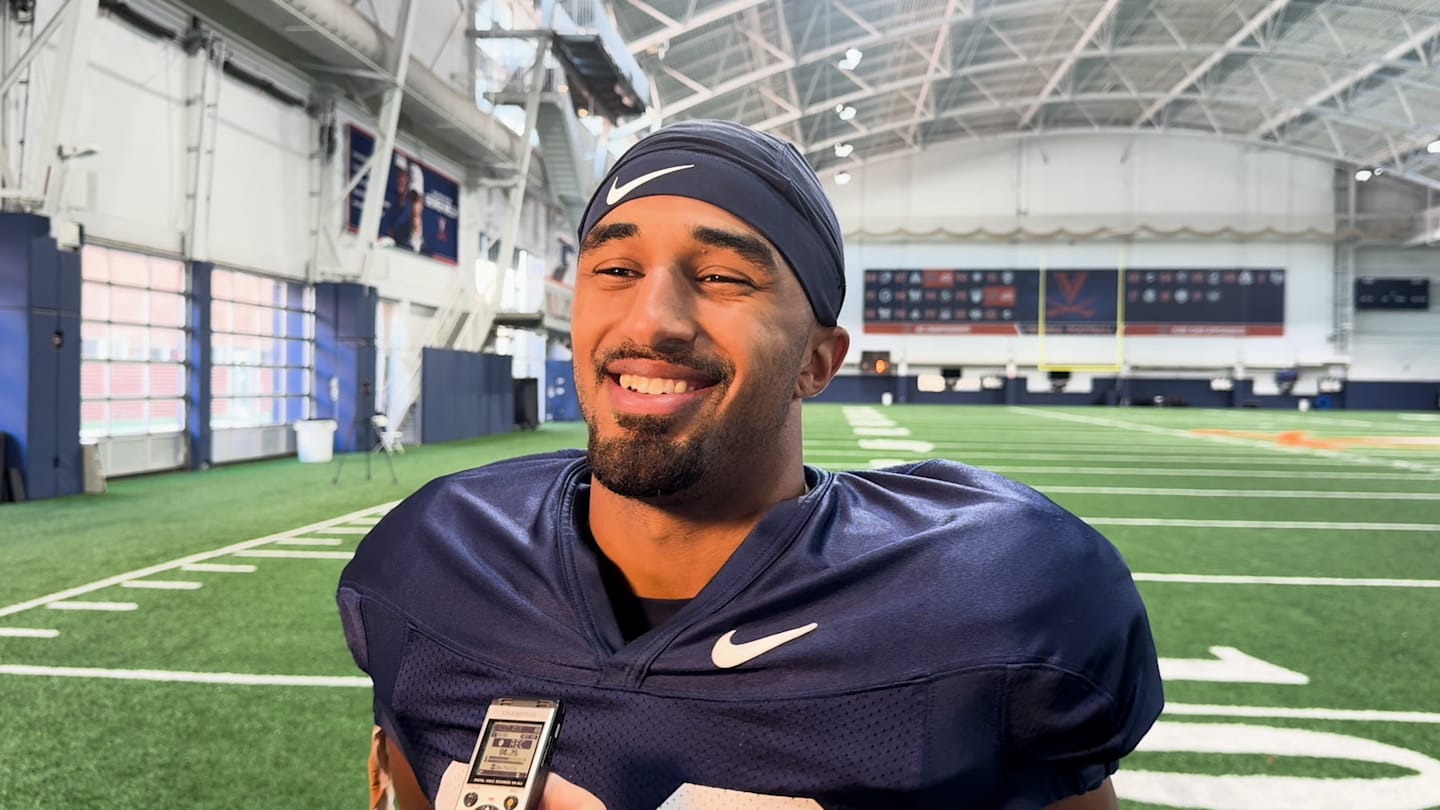
With the game of year looming this weekend, members of the Virginia football team were made available to to the media after practice on Tuesday morning to talk about the regular season finale against Virginia Tech in the Commonwealth Clash on Saturday night in Blacksburg. Watch the video below to hear what UVA senior safety Jonas Sanker, graduate tight ends Tyler Neville and Sackett Wood Jr., and graduate defensive tackle Jahmeer Carter had to say ahead of the Virginia Tech game:
Sanker is the team’s leader in tackles with 89 total tackles and also leads the ACC in solo stops with 60 unassisted tackles. He has racked up 8.5 tackles for loss, two sacks, four pass breakups, two fumble recoveries, and an interception as part of a strong senior campaign that should earn Sanker some serious consideration for a First-Team All-ACC selection.
A transfer from Harvard, Tyler Neville is Virginia’s second-leading receiver with 35 catches for 387 yards and two touchdowns. Sackett Wood Jr., meanwhile, has recorded three receptions for 18 yards and a touchdown this season. Between the two of them, Neville and Wood have combined to appear in 83 college football games and make 48 starts.
Saturday will be the 55th game in the five-year career of Jahmeer Carter, who has started nearly every game for the last four seasons at Virginia. This season, Carter has 30 total tackles, including nine solo stops, two tackles for loss, one sack, and a pass defender. For his career, Carter is up to 131 total tackles, 2.5 sacks, and 7.5 tackles for loss.
Saturday night will be the first time Virginia plays at Lane Stadium in front of fans since the 2018 season, as the 2020 edition of the Commonwealth Clash was played in front of only 250 fans due to COVID-19 restrictions and then the 2022 Virginia vs. Virginia Tech game was canceled due to the shooting tragedy at UVA.
Virginia is seeking its first road victory at Virginia Tech since 1998, as the Hokies have won the last 11 Commonwealth Clash games played at Lane Stadium. Virginia Tech has won 17 of the last 18 overall games against Virginia and leads UVA 61-38-5 in the all-time series that dates back to 1895.
Both Virginia and Virginia Tech bring a 5-6 overall record into the regular season finale and both need to win the game in order to reach the six-win threshold required for bowl eligibility. There is only one other game this weekend between FBS teams who are battling for bowl eligibility (Eastern Michigan vs. Western Michigan). Virginia and Virginia Tech played each other for bowl eligibility at the end of the 2014 season.
UVA Football: Players to Watch in Virginia vs. Virginia Tech
UVA Football Week 14 Injury Report: Kobe Pace, Kempton Shine, Trell Harris
Virginia Football Depth Chart vs. Virginia Tech | Takeaways, Analysis
Virginia Football Opens as Touchdown Underdogs at Virginia Tech
UVA Football Report Card: Handing Out Grades for Virginia vs. SMU
Virginia
Virginia Lottery Mega Millions, Pick 3 Night results for Nov. 26, 2024

The Virginia Lottery offers multiple draw games for those aiming to win big. Here’s a look at Nov. 26, 2024, results for each game:
Mega Millions
Mega Millions drawings take place every week on Tuesday and Friday at 11 p.m.
05-22-24-39-42, Mega Ball: 03, Megaplier: 3
Check Mega Millions payouts and previous drawings here.
Pick 3
DAY drawing at 1:59 p.m. NIGHT drawing at 11 p.m. each day.
Night: 7-3-0, FB: 2
Day: 7-2-1, FB: 5
Check Pick 3 payouts and previous drawings here.
Pick 4
DAY drawing at 1:59 p.m. NIGHT drawing at 11 p.m. each day.
Night: 1-6-6-8, FB: 5
Day: 7-4-5-8, FB: 4
Check Pick 4 payouts and previous drawings here.
Pick 5
DAY drawing at 1:59 p.m. NIGHT drawing at 11 p.m. each day.
Night: 0-5-4-9-9, FB: 2
Day: 6-9-5-3-2, FB: 0
Check Pick 5 payouts and previous drawings here.
Cash4Life
Drawing everyday at 9 p.m.
04-11-13-30-39, Cash Ball: 02
Check Cash4Life payouts and previous drawings here.
Cash Pop
Drawing times: Coffee Break 9 a.m.; Lunch Break 12 p.m.; Rush Hour 5 p.m.; Prime Time 9 p.m.; After Hours 11:59 p.m.
Coffee Break: 04
After Hours: 05
Prime Time: 06
Rush Hour: 09
Lunch Break: 12
Check Cash Pop payouts and previous drawings here.
Cash 5
Drawing every day at 11 p.m.
12-22-31-38-44
Check Cash 5 payouts and previous drawings here.
Feeling lucky? Explore the latest lottery news & results
This results page was generated automatically using information from TinBu and a template written and reviewed by a Center for Community Journalism (CCJ) editor. You can send feedback using this form.
Virginia
Virginia Basketball Holds Off Manhattan 74-65 | Key Takeaways
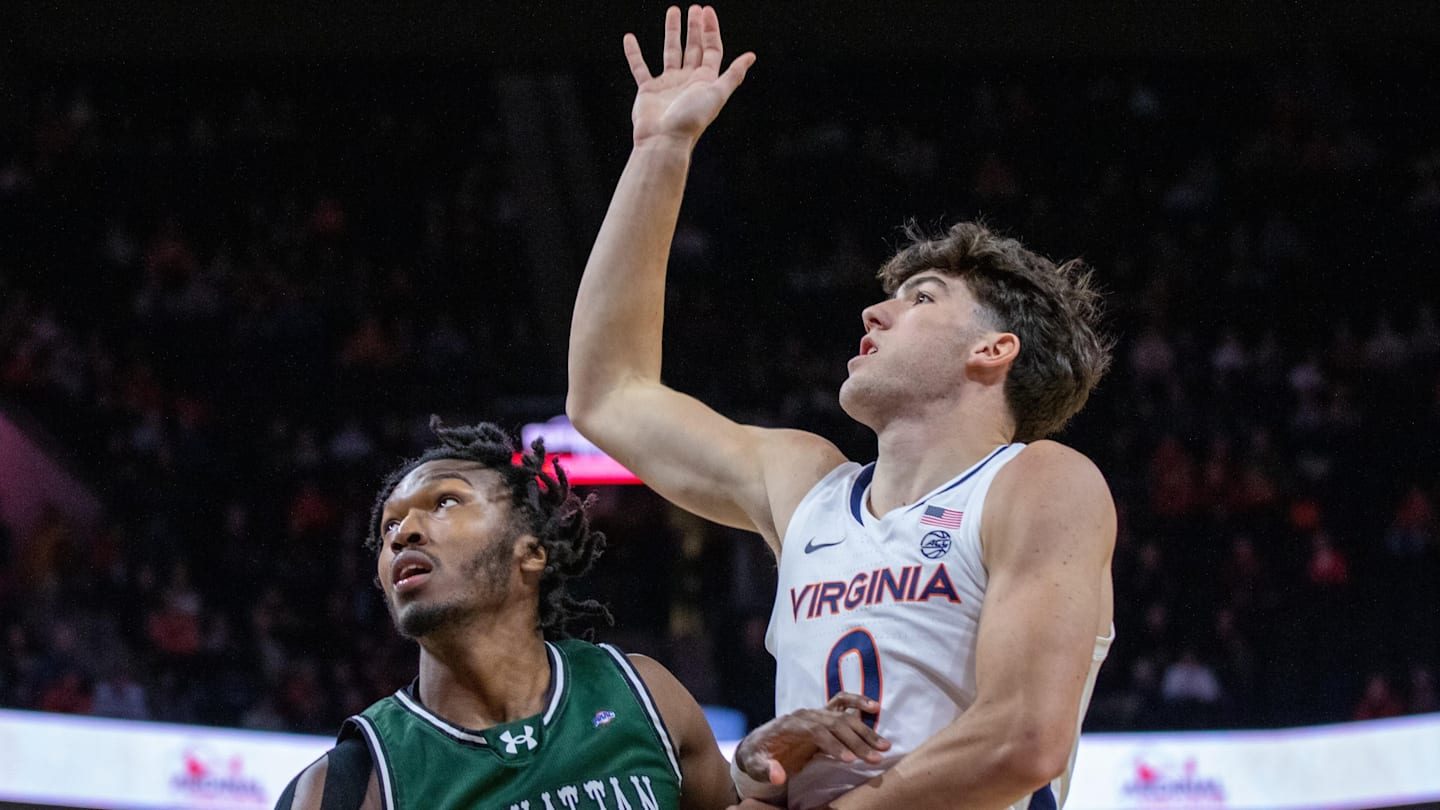
Virginia (4-2) got back in the win column with a 74-65 victory over Manhattan (3-3) on Tuesday night at John Paul Jones Arena. Here are our five quick takeaways from the Cavaliers’ win over the Jaspers.
Virginia was in serious need of a win after suffering those two humbling losses to Tennessee and St. John’s in The Bahamas. But a convincing and comfortable victory would have been even better and for a while, it seemed like the Cavaliers were on their way to doing just that. UVA led by as many as 15 points in the first half and opened up a 16-point advantage midway through the second half. But rather than putting the game away, Virginia let Manhattan hang around and the visiting Jaspers were in a situation where they were fouling to stop the clock in the final minutes, narrowing the deficit to as little as six points. A win is a win, but this was far from a confidence-boosting performance.
Virginia went with a new starting lineup on Tuesday night, as Andrew Rohde replaced TJ Power. Rohde has been playing very well recently, particularly with his resurgent outside shot, while Power came into this game shooting 25% from beyond the arc this season.
Power initially responded well to the benching, swishing a corner three shortly after he first entered the game, hitting the deck for a loose ball, and coming up with a steal to stop a Manhattan fastbreak. But he wound up playing only six minutes, fewest among Cavaliers who saw the floor in the game. That does not bode well for the Duke transfer.
Read Val’s Plus/Minus breakdown of the game here.
Rohde, on the other hand, had another solid game and was perhaps the top performer for the Hoos on Tuesday night. Though he missed his only three-pointer, which was a desperation off-balanced heave at the end of the shot clock, Rohde finished with a season-high 14 points, two assists (with one turnover), two rebounds, and four steals. Rohde showed excellent feel for the game, getting exactly where he wanted to go and exhibiting some nice touch on a couple of floaters plus a short jumper off the glass. If Rohde is playing like this and his three-point shot continues to be there, this could be a big season for the former St. Thomas transfer.
The main reason why this game continued to be close deep into the second half is because UVA’s defense frequently broke down and gave up open shots to Manhattan, particularly from the perimeter. The Jaspers shot 11/26 (42.3%) from beyond the arc and and seven different players knocked down a three. A couple of those Manhattan triples were well-contested, but the vast majority of them were wide-open. That’s very concerning and shows that this Virginia defense, with its many new faces, is still very much a work in progress.
Virginia’s offense was pretty well neutralized by Tennessee and St. John’s in The Bahamas. Tuesday night against Manhattan was a small step in the right direction, but there’s still a lot of room for improvement.
Let’s start with the good. Five different Cavaliers scored in double figures, including a game-high 18 points from Isaac McKneely, who hit three of his four three-point attempts and went 5/6 from the free throw line. We still think McKneely needs to shoot way more, but we’ll leave that alone for now. Dai Dai Ames scored 10 points and dished out five assists, but fouled out of the game. Blake Buchanan made his first four shots and finished with 11 points and five boards. Cofie made five of his seven shots and finished with 10 points and five boards. The best part of the game was that Virginia had 15 assists on 29 made baskets and turned the ball over only eight times, a vast improvement over the team’s turnover issues in The Bahamas.
Virginia outscored Manhattan 42-22 in the paint. That looks like a good stat, but it’s also an inevitable stat because of UVA’s size advantage over the Jaspers, whose tallest player in the rotation is 6’8″. Still, Manhattan snared 10 offensive rebounds and scored 11 second-chance points. In The Bahamas, UVA was dominated on the glass and was simply outmatched from a physicality and athleticism standpoint. Nothing we saw from the Cavaliers on Tuesday night did anything to alleviate those concerns.
Up next, Virginia remains at home for another (supposed) tune-up game against Holy Cross on Friday at 4pm at John Paul Jones Arena.
Virginia vs. Manhattan Live Updates | NCAA Men’s Basketball
UVA Basketball: Ten Things We Learned About Virginia in The Bahamas
Virginia Basketball Falls to St. John’s 80-55 | Key Takeaways
-

 Science1 week ago
Science1 week agoTrump nominates Dr. Oz to head Medicare and Medicaid and help take on 'illness industrial complex'
-
/cdn.vox-cdn.com/uploads/chorus_asset/file/25739950/247386_Elon_Musk_Open_AI_CVirginia.jpg)
/cdn.vox-cdn.com/uploads/chorus_asset/file/25739950/247386_Elon_Musk_Open_AI_CVirginia.jpg) Technology1 week ago
Technology1 week agoInside Elon Musk’s messy breakup with OpenAI
-

 Health5 days ago
Health5 days agoHoliday gatherings can lead to stress eating: Try these 5 tips to control it
-

 News1 week ago
News1 week agoThey disagree about a lot, but these singers figure out how to stay in harmony
-

 Health2 days ago
Health2 days agoCheekyMD Offers Needle-Free GLP-1s | Woman's World
-

 Science2 days ago
Science2 days agoDespite warnings from bird flu experts, it's business as usual in California dairy country
-
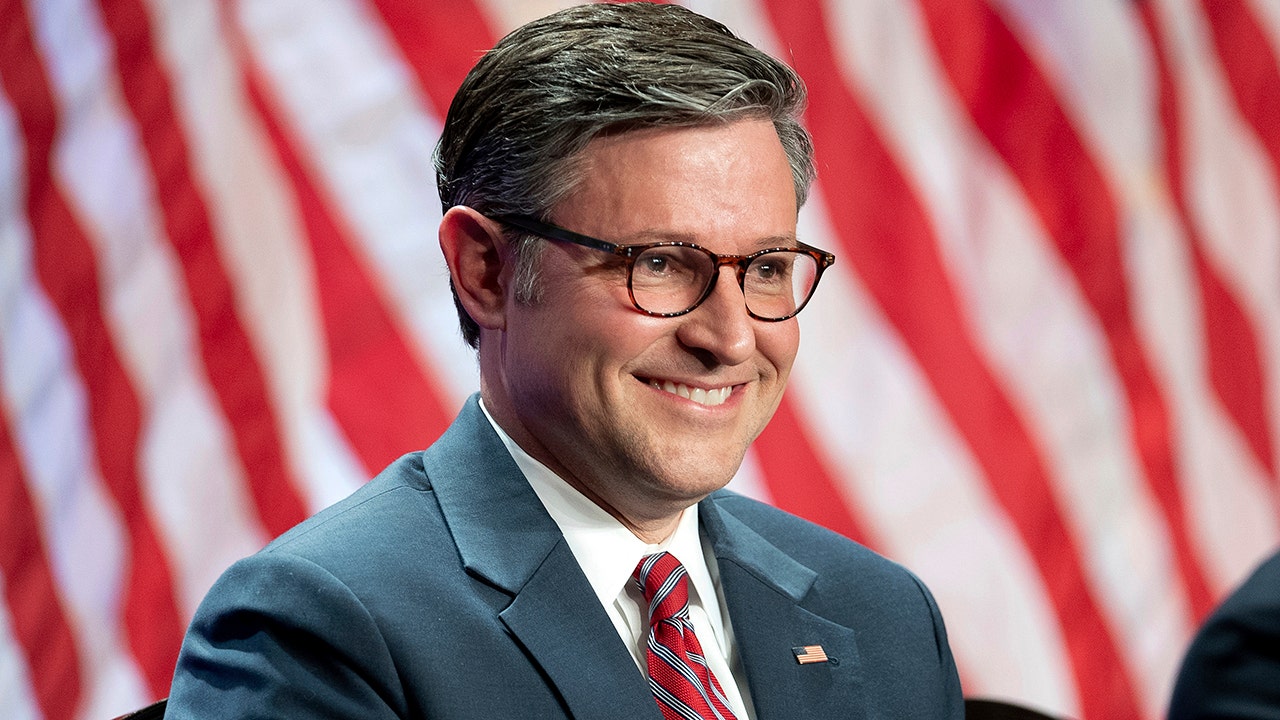
 Politics1 week ago
Politics1 week agoSize of slim Republican House majority hangs on 5 uncalled races
-

 World1 week ago
World1 week agoBangladesh ex-ministers face ‘massacre’ charges, Hasina probe deadline set
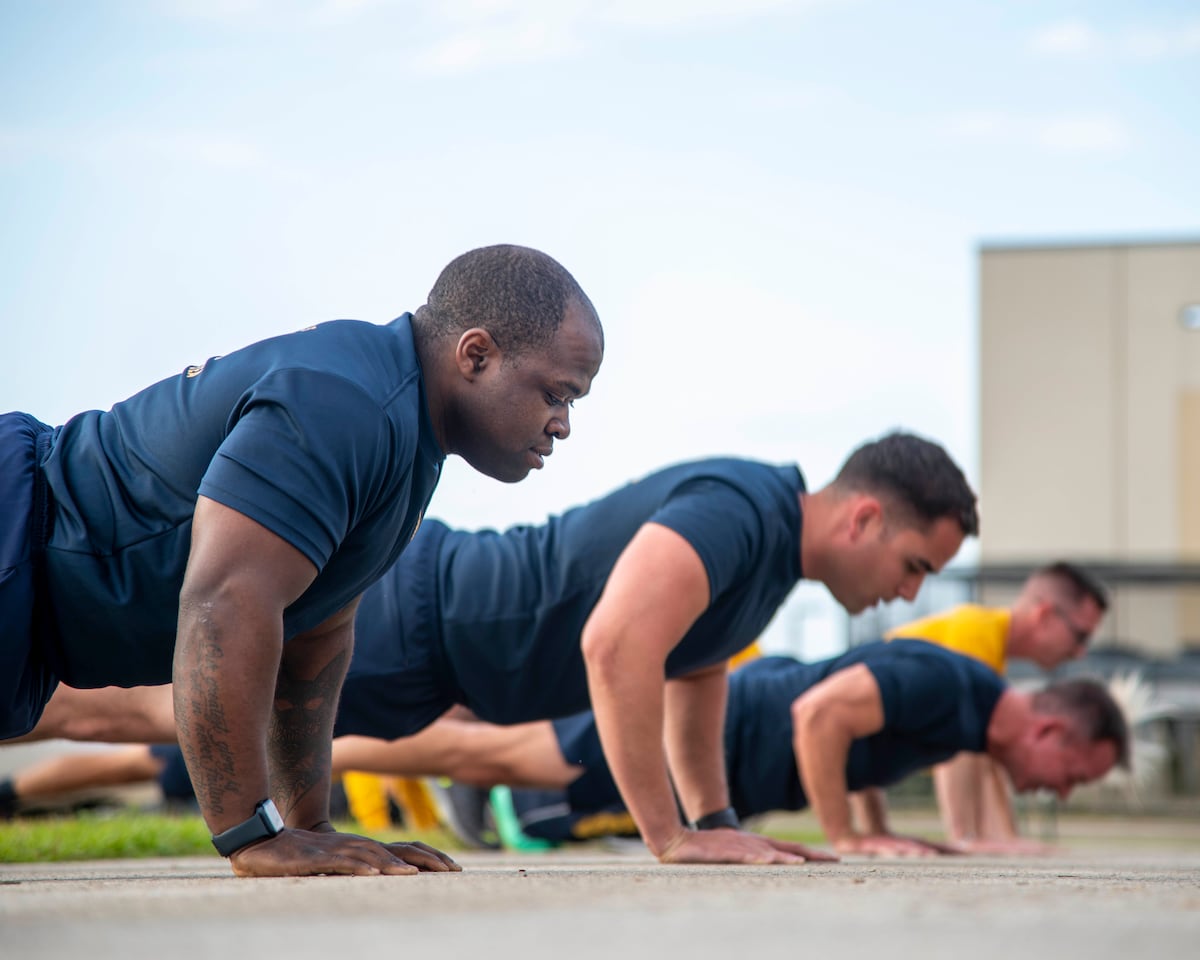
)
![Well Water Test Kit for Drinking Water – Quick and Easy Home Water Testing Kit for Bacteria Nitrate Nitrite pH Manganese & More | Made in The USA in Line with EPA Limits [NO MAILING Required] Well Water Test Kit for Drinking Water – Quick and Easy Home Water Testing Kit for Bacteria Nitrate Nitrite pH Manganese & More | Made in The USA in Line with EPA Limits [NO MAILING Required]](https://newspub.live/wp-content/uploads/2024/11/71zFxEZ3NgL._SL1500_-400x240.jpg)
![Well Water Test Kit for Drinking Water – Quick and Easy Home Water Testing Kit for Bacteria Nitrate Nitrite pH Manganese & More | Made in The USA in Line with EPA Limits [NO MAILING Required] Well Water Test Kit for Drinking Water – Quick and Easy Home Water Testing Kit for Bacteria Nitrate Nitrite pH Manganese & More | Made in The USA in Line with EPA Limits [NO MAILING Required]](https://newspub.live/wp-content/uploads/2024/11/71zFxEZ3NgL._SL1500_-80x80.jpg)









